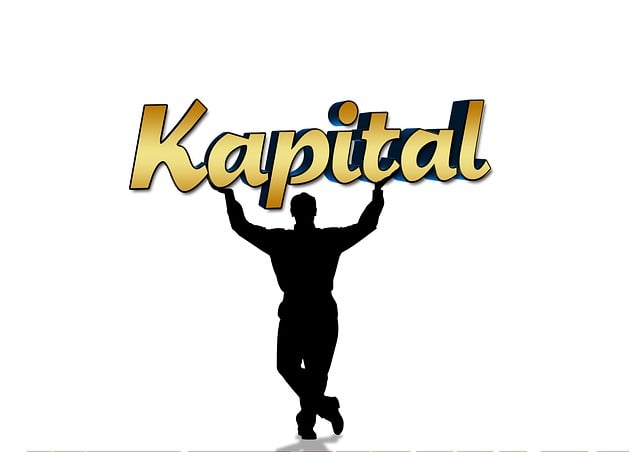Debt restructuring and debt review are two distinct strategies for managing overwhelming debt in South Africa. Restructuring involves modifying loan terms through collaboration with lenders, while debt review focuses on evaluating financial situations to negotiate lower monthly payments without altering agreements. Debt restructuring is suitable for substantial debts requiring radical solutions, while debt review aids in gaining clarity and control over finances through strategic management, regardless of current debt levels. Understanding these differences is crucial for effectively managing financial obligations.
In South Africa, managing debt is a complex challenge facing many individuals and businesses. This article delves into two crucial strategies for navigating financial distress: Debt Restructuring and Debt Review. We provide a comprehensive overview of each approach, exploring their roles in the local financial landscape and highlighting key differences between them. By understanding these distinctions, South Africans can make informed decisions to effectively manage debt, ultimately choosing the optimal strategy for their unique circumstances.
- Understanding Debt Restructuring: A Comprehensive Overview
- The Role of Debt Review in South Africa's Financial Landscape
- Key Differences Between Debt Restructuring and Debt Review
- Strategies for Effective Management: Choosing the Right Approach
Understanding Debt Restructuring: A Comprehensive Overview

Debt restructuring and debt review are two distinct processes that South African individuals and businesses often turn to in their financial journey. While both aim to provide relief from overwhelming debt, they differ significantly in approach and outcome. Debt restructuring involves a comprehensive strategy where lenders and debtors work together to modify the terms of the original loan agreement. This can include lowering interest rates, extending repayment periods, or even writing off a portion of the debt. It is a collaborative process that requires negotiation and often leads to a new, more manageable repayment plan.
On the other hand, debt review is an evaluation process where debtors assess their financial situation and explore various options to manage their debt effectively. This may involve negotiating with creditors for lower monthly payments or interest rates, but it does not necessarily alter the underlying loan agreement. Debt review provides borrowers with a clearer understanding of their financial obligations and empowers them to make informed decisions about their debt trajectory, ultimately helping them navigate the complex landscape of Debt Restructuring Vs Debt Review in South Africa.
The Role of Debt Review in South Africa's Financial Landscape

In South Africa, the financial landscape is unique, shaped by historical inequalities and economic challenges. Amidst this complexity, debt restructuring and debt review emerge as crucial strategies for individuals and businesses navigating financial strain. While both concepts involve managing debt, they differ significantly in approach and outcomes.
Debt review focuses on evaluating an individual’s or entity’s current financial situation to determine the feasibility of repayment. It involves renegotiating terms with creditors, often leading to reduced interest rates or extended repayment periods. This process empowers borrowers by providing a chance to regain financial control and avoid default. In contrast, debt restructuring goes beyond review; it involves restructuring the entire debt portfolio, potentially through debt consolidation or even legal mechanisms like insolvency proceedings. Compared to debt review, restructuring is more extreme, aiming to create a fresh financial start for those burdened by insurmountable debt.
Key Differences Between Debt Restructuring and Debt Review

Debt Restructuring vs Debt Review: Understanding Key Differences
While both debt restructuring and debt review are strategies aimed at alleviating financial strain, they operate on distinct principles. Debt restructuring involves a fundamental change in the terms of existing debts, often through negotiations with creditors to alter interest rates, repayment periods, or principal amounts. This can lead to significant long-term savings and improved cash flow for individuals or businesses. On the other hand, debt review takes a more analytical approach, examining all debts to identify areas where management could be optimized. It involves creating a detailed plan to prioritize and manage debt payments effectively, without necessarily changing the original terms.
Debt restructuring is typically suited for those with substantial debt burdens who need a radical solution, while debt review is ideal for those looking to gain clarity and control over their financial situation through strategic management, regardless of the current level of debt.
Strategies for Effective Management: Choosing the Right Approach

When it comes to managing debt, South Africa offers various strategies, with Debt Restructuring and Debt Review being two prominent approaches. Each method has its unique advantages and is suited to different financial scenarios. Understanding the nuances between these concepts is crucial for individuals and businesses aiming for effective debt management.
Opting for Debt Restructuring involves renegotiating the terms of the existing debt, often with lenders. This can include lower interest rates, extended repayment periods, or a combination of both. It’s an ideal strategy for those facing short-term financial difficulties but want to maintain their original loan agreement with adjustments. On the other hand, Debt Review is a process where debtors analyse and assess their entire debt portfolio. It encourages a fresh look at financial obligations, identifying areas for improvement, and creating a sustainable repayment plan. This approach is beneficial for long-term debt management and is particularly useful for those seeking a holistic view of their financial health.
Debt Restructuring and Debt Review are both vital strategies for South Africans navigating financial challenges. While Debt Restructuring offers a comprehensive solution, often involving debt consolidation and extended terms, Debt Review focuses on assessing and improving individual financial health. Understanding the nuances between these approaches is crucial for choosing the most effective path. By considering one’s unique financial situation and goals, individuals can decide whether to restructure or review their debts, ultimately leading to better financial management and improved creditworthiness in South Africa’s evolving economic landscape.







